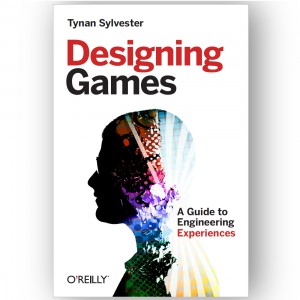People talk about the depth of games a lot, but it’s tricky to figure out exactly what that means. I’ve been thinking about a new way to measure the depth of games. It’s the Skill Ceiling.
The skill ceiling is basically the answer to the question:
How much can a player theoretically improve their skill at this game before there is no way to get better?
Alternatively:
How good can a hypothetical perfect player be at this game? How much better is this than average performance?
It’s easy to measure games on this scale.
Modern Warfare 2 has an extremely high skill ceiling – so high that no human being will ever come close to it. The game runs at 60fps, game verbs generally have little latency, and the game state can change very quickly. It is possible, with excellent tactics and aim, to eliminate entire enemy teams in moments. A theoretical perfect player in that game could singlehandedly defeat an entire team of very skilled human players.
In the middle of the spectrum, Assassin’s Creed 2 has a medium skill ceiling. A perfect player could do significantly better than an normal player, but would not be so astronomically beyond him as in MW2. Many game actions initiate momentary losses of player control while Ezio swings a sword or grabs another handhold, during which the normal player can mentally catch up with the perfect player. And the gamestate cannot change nearly as fast as in MW2. Even with perfect swordplay, for example, it would take at least 50 seconds or so to kill 10 enemies, since the animations to kill enemies take about 5 seconds. A normal player could probably get quite close to this level of performance with practice, since the optimal strategy does not require inhuman reflexes. Ezio’s performance is limited by the game instead of being limited only by player skill.
At the bottom of the spectrum are games that quickly break down into degenerate strategies, like Tic Tac Toe. Game designers who want their games to play out exactly like the envision them often end up with games like this, since there are so few strategies. This is the problem with using quicktime events as skill challenges. Since there is a binary outcome which can be secured by an average player, there is no difference between an average player and a theoretically perfect player.
Toylikes like The Sims can’t be measured by skill ceiling per se since there is no traditional goal or competition, so this concept breaks down when applied to them.
You’ll note a sharp downward trend in terms of replayability as the skill ceiling falls. The reason for this is that replayability ends as soon as a player consumes all content and hits the skill ceiling. MW2 multiplayer is endlessly replayable since there are always ways to get better, even for players who are inhumanly skilled.
There are two ways to build skill ceiling that I’ve thought of:
The first is the SHMUP method, which is to simply demand such accurate moment-to-moment input that no player could ever do it perfectly. The game simply runs so fast that no human mind can keep up. Racing games, SHMUPS, and fighting games depend on this method to a high degree. Pretty much any game sped up to a high speed will start to do this. Imagine playing Tic-Tac-Toe, but you get a third of a second to make your move. As a mental exercise, you can strip out this element of any game by slowing it down. Imagine MW2 multiplayer played at 10% normal speed.
The second is the Go method. This has nothing to do with twitch skills and all to do with managing complex strategic and tactical information. The game simply presents so many options and variables that nobody can easily see where it is going, even if they can stare at is as long as they want. This type of complexity is harder to do meaningfully than simple high frequency input.
The best games use both these methods. Modern Warfare 2 multiplayer, for example, uses both. Starcraft does as well. Both games are very different, but both have vibrant online communities.
Even in Modern Warfare 2, note the replayability difference between online multiplayer and Spec Ops, which really only uses the SHMUP method of building skill ceiling since the AIs are so simple and predictable.
The above theory is descriptive, but not predictive. I’ll be thinking and writing more about how to design games for high skill ceiling in the future.

